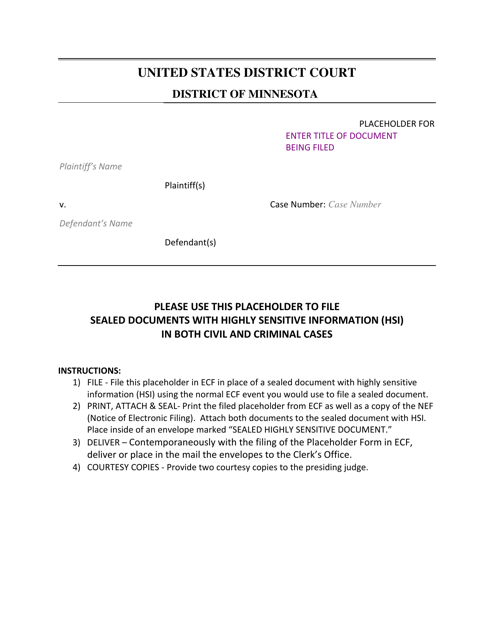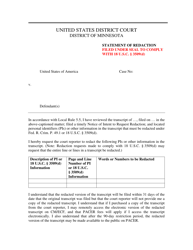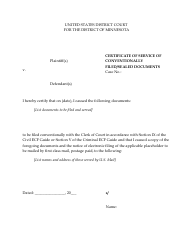Placeholder to File Sealed Highly Sensitive Documents - Minnesota
Placeholder to File Sealed Highly Sensitive Documents is a legal document that was released by the United States District Court for the District of Minnesota - a government authority operating within Minnesota.
FAQ
Q: Why would I need to seal my documents?
A: You may need to seal your documents to protect sensitive or private information.
Q: What types of documents can be sealed?
A: Various types of documents can be sealed, such as court records, adoption records, or certain confidential documents.
Q: What is the process for sealing documents in Minnesota?
A: The process for sealing documents in Minnesota typically involves filing a petition with the court, providing supporting evidence, and attending a hearing.
Q: Are there any fees associated with sealing documents?
A: Yes, there may be filing fees associated with sealing documents in Minnesota. The fees can vary depending on the type of document and the court.
Q: How long does it take to seal documents?
A: The time it takes to seal documents in Minnesota can vary. It may take several weeks or months, depending on the court's schedule and the complexity of the case.
Q: Who can access sealed documents?
A: Sealed documents are typically only accessible by authorized individuals, such as the parties involved in the case or individuals with a valid court order.
Q: What happens if a sealed document needs to be accessed in the future?
A: If a sealed document needs to be accessed in the future, a motion to unseal the document can be filed with the court.
Q: Can sealed documents ever be permanently unsealed?
A: In certain circumstances, sealed documents may be permanently unsealed by court order.
Q: Can I seal documents from other states in Minnesota?
A: No, documents from other states must typically be sealed in the state where the documents were originally filed or generated.
Form Details:
- The latest edition currently provided by the United States District Court for the District of Minnesota;
- Ready to use and print;
- Easy to customize;
- Compatible with most PDF-viewing applications;
- Fill out the form in our online filing application.
Download a printable version of the form by clicking the link below or browse more documents and templates provided by the United States District Court for the District of Minnesota.



